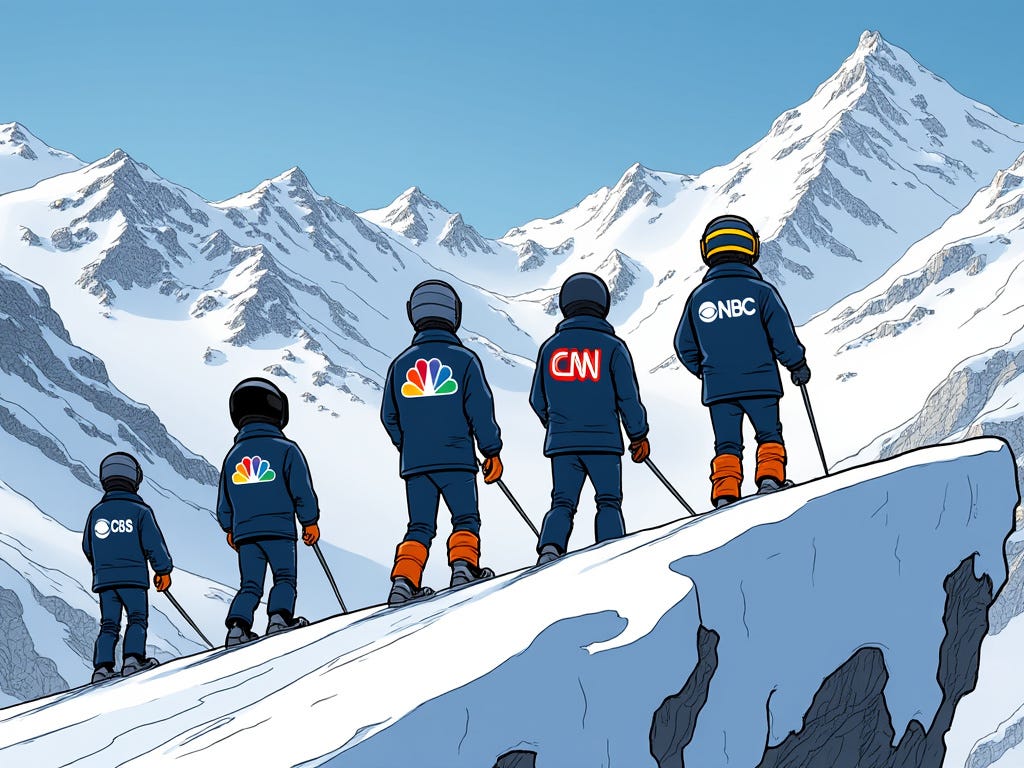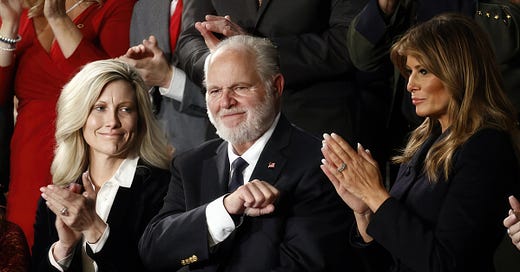

Discover more from @amuse
Journalism, the bedrock of any healthy republic, stands as the guardrail against unchecked power, ensuring accountability and transparency. This critical function hinges on the principle that journalists must be protected from targeted retribution for their reporting, no matter how scathing. Yet, this core tenet is under siege. The Southern Poverty Law Center (SPLC), that bastion of leftist orthodoxy, has decided that some journalists—those who happen to be conservatives—should be fair game. Their latest target? Writers at Not the Bee, the real-news arm of the Christian satire site The Babylon Bee. Such a deviation not only jeopardizes these individual reporters but sets a dangerous precedent: a slippery slope where retaliation against journalists becomes normalized, a tactic eagerly embraced by political zealots on all sides.
The sanctity of a journalist's private life has long been a cornerstone of journalistic ethics. This principle is embedded in the codes of conduct established by professional press organizations in the 19th and 20th centuries, ensuring that those who challenge the powerful are not themselves targeted in turn. It wasn't out of altruism that this understanding was reached—it was an acknowledgment of the profound imbalance of power between individual journalists and the institutions they scrutinize. To preserve the integrity of journalism, there must be a line separating valid public scrutiny of powerful figures from personal retaliation against those who do the reporting.
In this regard, organizations like the Society of Professional Journalists (SPJ) and the International Federation of Journalists (IFJ) have been instrumental. Their ethical guidelines emphasize the importance of journalistic independence, free from harassment or threats. Similarly, entities such as the Committee to Protect Journalists (CPJ) and Reporters Without Borders have been pivotal in condemning any forms of retaliation aimed at silencing the press. Such retaliation is not just unethical—it is an attack on the public's right to know. Without protections, journalists become silenced, and the truth they labor to bring forward remains buried beneath the interests of those who fear its exposure.
The 2014 Uber controversy serves as a stark reminder of why these protections are vital. Uber's then-executive Emil Michael—feeling the sting of critical coverage—suggested that the company could spend a million dollars to dig up dirt on journalist Sarah Lacey. Her crime? Criticizing Uber's questionable culture. The response to Michael's threat was swift and unequivocal. Media outlets, public figures, and consumers condemned the remarks, forcing Uber's CEO, Travis Kalanick, to publicly apologize. The backlash reinforced an unspoken rule: journalists can scrutinize public figures and institutions, but retaliating by delving into a reporter's personal life crosses a dangerous line. This public uproar protected press independence and reminded everyone—especially corporations wielding immense power—that attacks on journalists' personal lives are wholly unacceptable.
Now, however, the SPLC appears eager to ignore that ethical boundary. Babylon Bee CEO Seth Dillon has revealed that the SPLC is actively doxxing Not the Bee's writers, who have chosen pseudonyms precisely so they could express their views without fear of personal retaliation. The SPLC went digging for sensitive information, eventually contacting these writers directly and revealing their identities in a published report. Such tactics aren't about debate or counterargument—they are about silencing voices they disagree with by instilling fear and intimidation.
And this isn’t just about Not the Bee. The SPLC, originally a civil rights defender, has transformed into a partisan attack dog, aiming its sights less at real hate groups and more at mainstream conservative organizations. This is the same SPLC that once branded the Family Research Council as a hate group—a designation that coincided with an attempted mass shooting at the FRC's headquarters. This SPLC of today doesn't merely differ from its original mission—it is the antithesis of what it claimed to be. In attempting to silence conservative voices, it abandons civil rights advocacy for the chilling pursuit of ideological conformity.
The campaign against Not the Bee highlights a troubling trend in American society—a willingness by political factions to retaliate against those whose views they oppose. Consider where this road leads: a press environment where digging into the personal lives of journalists becomes standard operating procedure. Will conservative groups then begin to hire private investigators to follow journalists? To scrutinize their finances, speak to their neighbors, and publish their private details online? If the SPLC’s precedent stands, this is not some far-flung dystopian fantasy—it is tomorrow’s front page. And the chilling effect on journalism will be profound. Who, but those with nothing to lose or nothing to hide, would choose to speak truth to power under such circumstances?
The power of the press lies in its ability to operate independently—to hold the powerful to account without fear of retribution. The SPLC's actions corrode that independence. Their attempt to intimidate and dox journalists at Not the Bee undermines the democratic role of the media and degrades the very norms that protect journalists from being personally targeted. The press's independence is not a privilege for journalists but a right of the public—a right to receive unfiltered information free from the vested interests of the powerful.
And where are the guardians of press freedom? Organizations like Reporters Without Borders and Committee to Protect Journalists work tirelessly to defend journalists against such attacks worldwide. But here, we need more voices, especially from those whose mission is to uphold these values within the profession itself. Where are the Society of Professional Journalists (SPJ) and the International Federation of Journalists (IFJ) when independent journalists like those at Not the Bee are being targeted? Their silence is glaring, and it is unacceptable. The SPJ and IFJ must step forward to condemn these acts and protect those who are under threat for simply doing their jobs.
If these professional organizations do not act now, they risk the erosion of the very norms that protect free and independent journalism. The SPLC's tactics represent a declaration of open season on journalists—particularly those whose perspectives do not align with their own. The assault on Not the Bee is just a preview of what is to come if the line separating journalistic inquiry from personal attack continues to blur. To allow this slippery slope to go unchallenged is to set fire to the protections that enable a free press. The SPJ, IFJ, and all defenders of journalistic integrity must draw the line here—must take a stand now, before these norms are irreparably shattered and all journalists are left vulnerable to the capricious whims of those they seek to hold accountable.
If you don't already, please follow me on 𝕏 at https://x.com/amuse

















I say away with the SPLC, once and for all. They have done enough damage to people's lives.